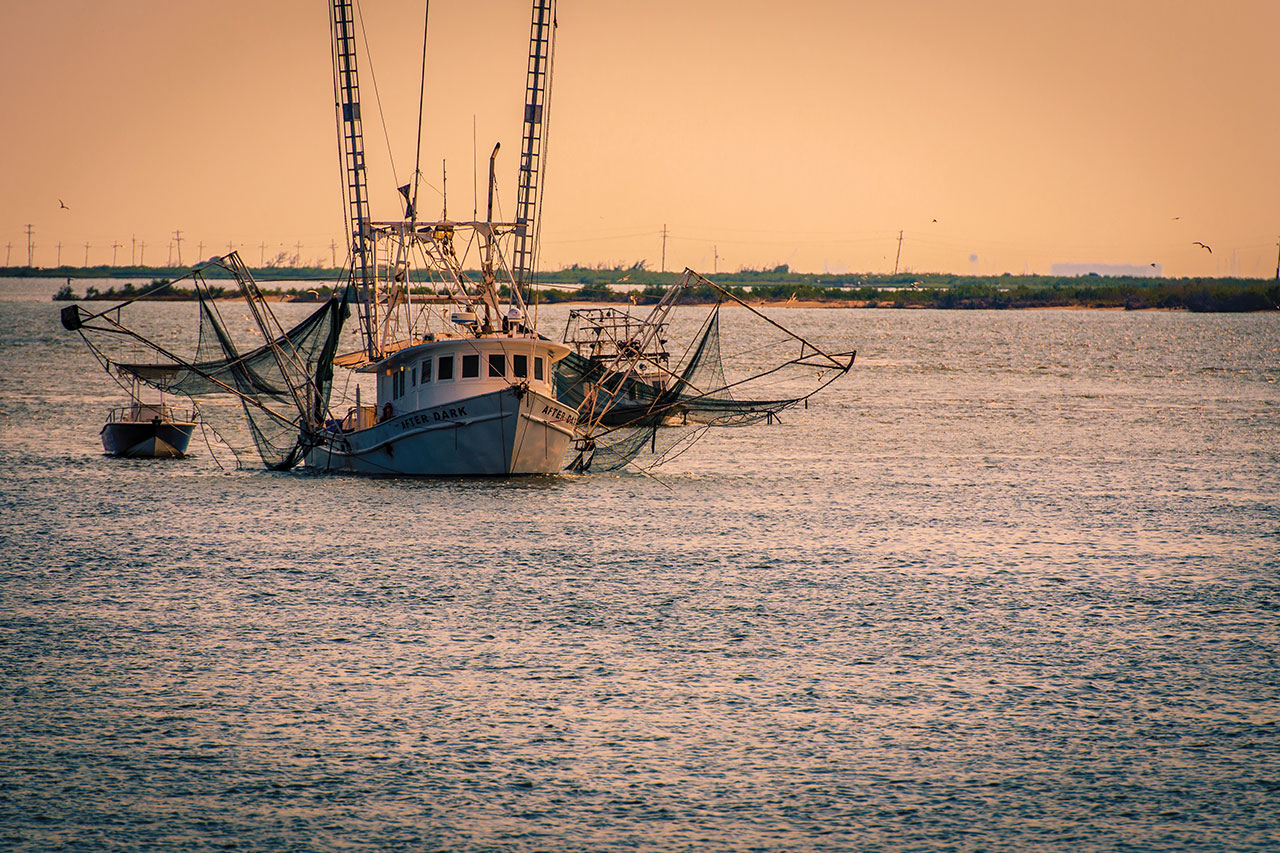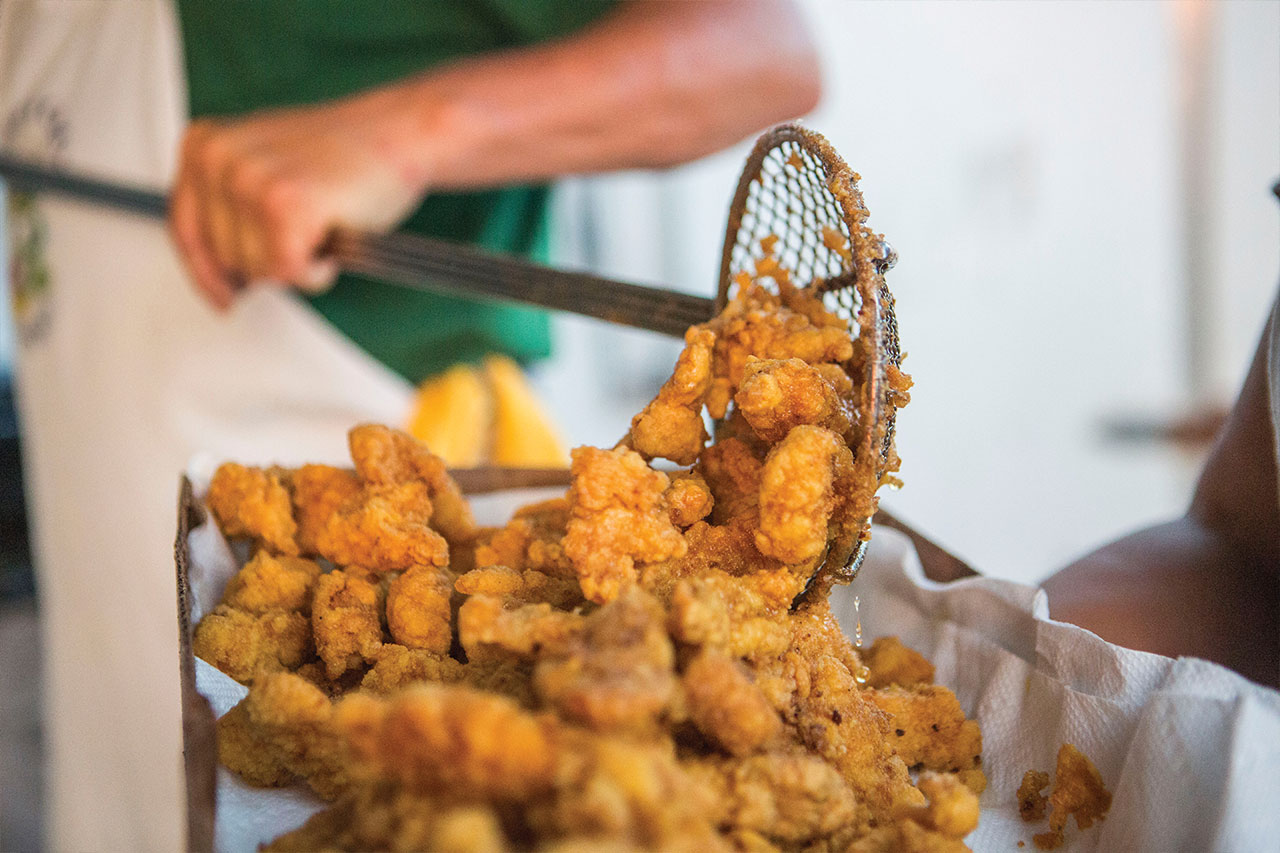
Locals Watching Nervously as Water Levels Rise
June 12, 2019
Current Shrimp Season Brings Uncertainty
June 12, 2019In the very near future, Louisiana restaurant patrons will know exactly where the seafood they’re purchasing is coming from — assuming it’s not from American waters.
House Bill 335, authored by local State Rep. Jerry Gisclair (D-Larose), will require Louisiana restaurants to keep a place on its menu to label the country of origin of the seafood used in a given dish — if the catch is not from the United States.
The bill passed both the House and Senate unanimously and has been signed into law by Gov. John Bel Edwards. Restaurants will have to comply with the law in the coming months, and those who do not will be issued a sanitation violation by the Department of Health during inspections.
Gisclair said he brought the bill to government because of health and safety concerns with consuming foreign seafood.
But local seafood harvesters say it also will be great for the local economy, because it should entice more restaurants to shop local and invest in fresh, Louisiana-caught shrimp and seafood.
Louisiana grocery stores were already governed by the same rules that the restaurants now are mandated to follow. Packaged seafood sold for retail must list the country of origin.
“I think people in Louisiana have a right to know what it is they’re eating,” Gisclair said during discussion of the bill.
“This is great for the state of Louisiana,” Grand Isle shrimper Dean Blanchard added, an outspoken supporter of the bill. “If the restaurants want to serve foreign seafood, let us know — let the customers know. Then give them the power. Let them choose and let their voice be heard.”
Gisclair’s concerns about the safety of foreign-caught seafood hold merit, and the timing of his bill was impeccable.
CBS News did a report on foreign seafood which painted the industry in less than a favorable light. The report said that the seafood is often fed with manure throughout its life and that they are given antibiotics before being sent to the United States.
In 2015, Fox 8 Investigative Reporter Lee Zurik looked at a lot of the same things. In his reporting, Zurik said that the vast majority of imported shrimp are not tested by the FDA and some that are tested are often not clean.
In the 2015 report, it was learned that 1.3 billion pounds of shrimp were imported into the United States per yer, but only 500 samples total were tested by the FDA. Of those samples, 12 percent of them were found to be “unsafe.”
The reason for the positive tests were because of high levels of antibiotics and/or drug residue within the samples. In the bill, the state officially recognizes that there are “toxins, chemicals, residues, antibiotics and radiation” in imported seafood.
With that small of a sample size and with that much of the catch untested, Gisclair said it’s “impossible” that 100 percent of the foreign seafood that’s being served around the state is safe, which lead to his authoring of the bill.
Exempt from the labeling are schools, churches, charity events and nursing homes. Gisclair said he’d hope further expansions would be explored in the future, though he is termed out of office after this session and will not be able to pursue them, himself.
“Safety is a huge concern and there are big issues with what is out there on the market,” Gisclair said. “It’s not a safe product and it’s not something that people should be given — without them knowing that it’s what’s on their plate.”
The reason restaurants are tempted to use the foreign product are their low prices, and an initial argument against the bill from lobbyists was that it would hurt both the bottom line of the business and also the consumer because higher operational costs will mean higher costs for the consumer.
But locals quizzed about the topic don’t seem to mind.
Houma native Rosa Williams said she wants to purchase Louisiana seafood, adding that if given the option of picking between one business that serves Louisiana shrimp and another who serves Chinese shrimp, she will shop local — even if it costs more to do so.
“I want to help my brothers and sisters,” Williams said. “I want to keep the money here as best as we can. We can’t flourish unless we support our own.”
Galliano native Bobby Collins agreed.
While dining at an eatery in Lafourche Parish, Collins said he applauded Gisclair’s work in getting the bill to passage, adding that it’s a “common sense bill” that “should have been passed decades ago.”
Collins said he thinks local seafood tastes better, is safer to consume and that the bill will be a win-win for everyone.
“If I buy a baseball bat on Amazon that looks aluminum, but is wood when it comes in, I’d be able to get my money back,” Collins said. “It’s the same here. If I am spending my money on a product and am putting it in my body, I should know what it is, where it came from and if it’s safe or healthy.” •








